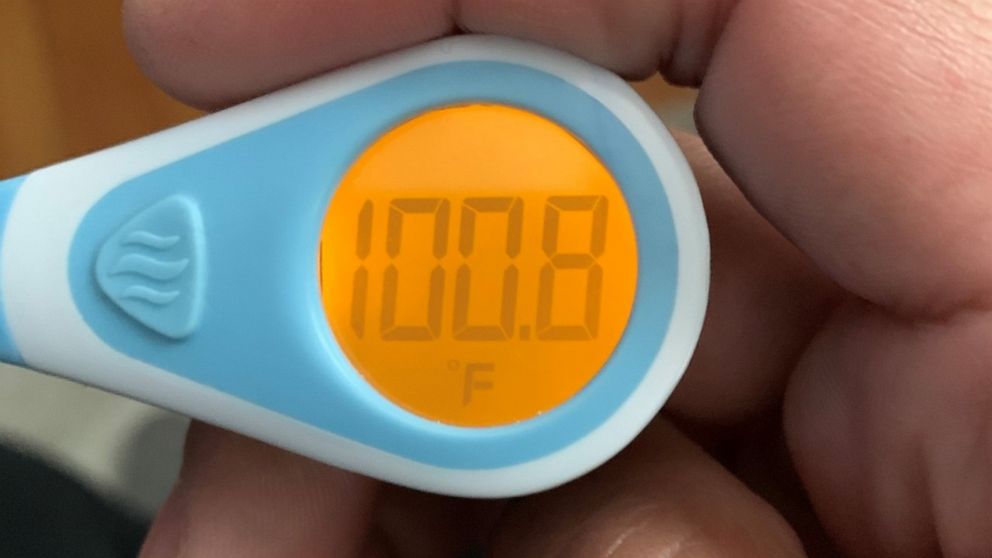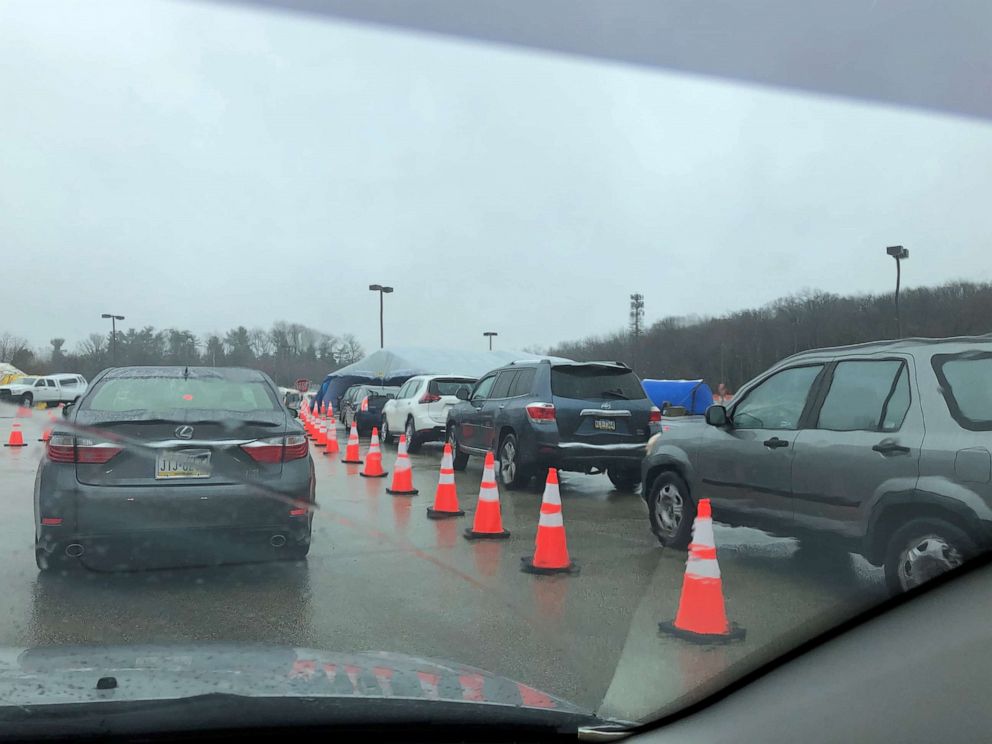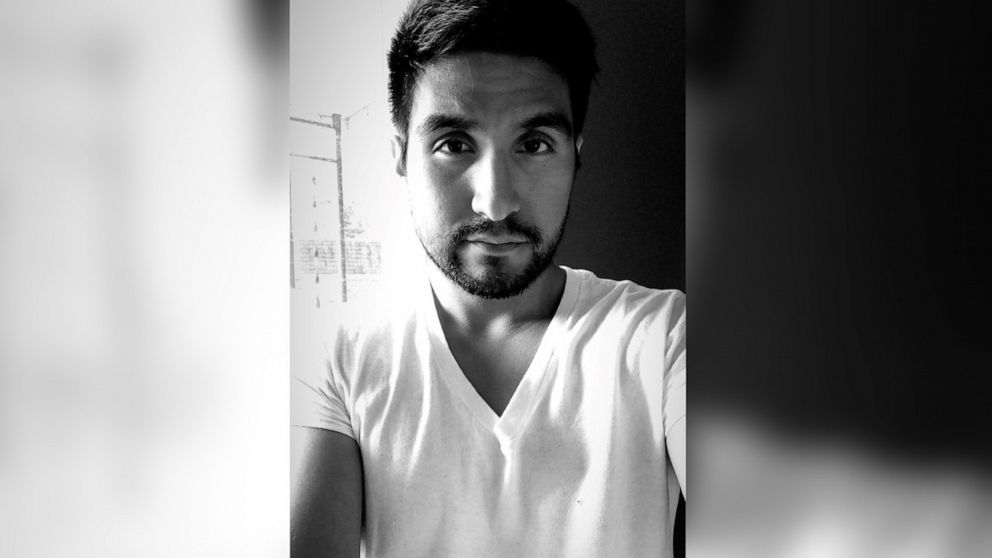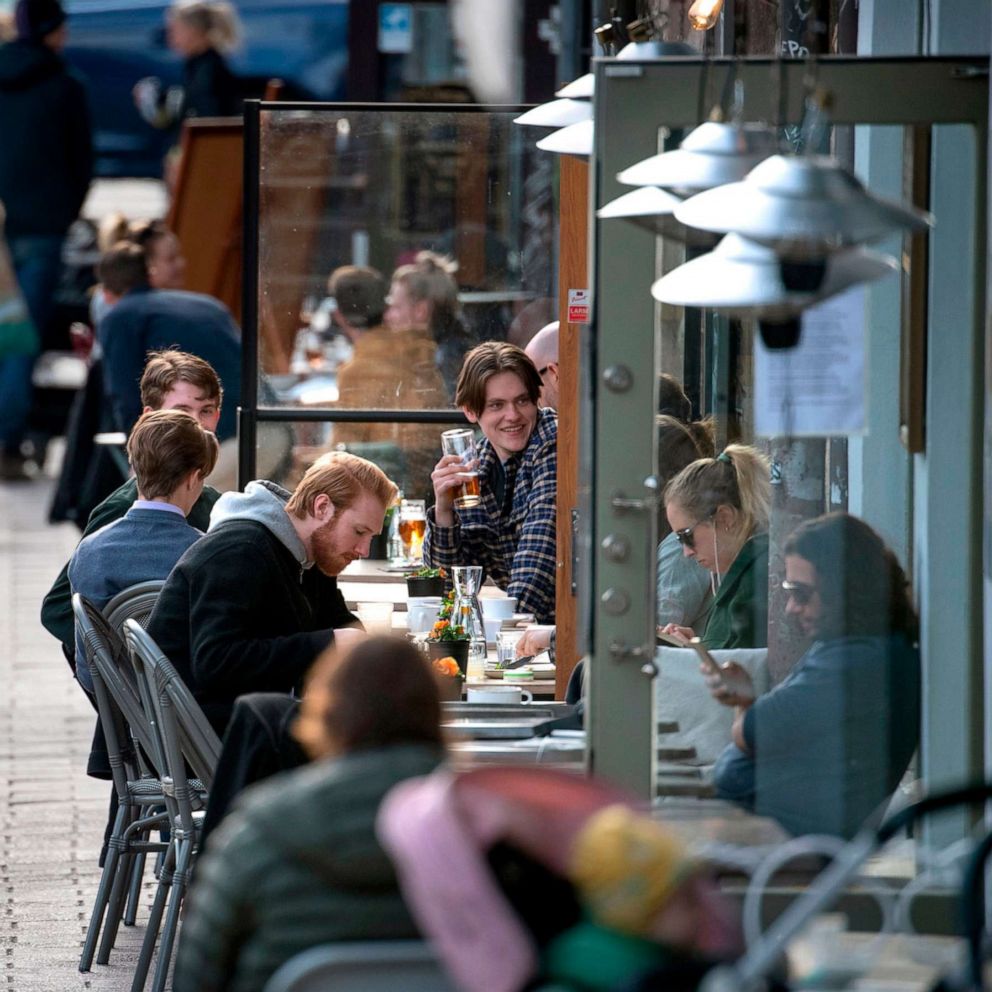'Catching the virus didn’t feel like it could happen to me': Reporter's Notebook
Philadelphia ABC reporter George Solis contracted the virus in March.
George Solis, a reporter for Philadelphia ABC station WPVI, shares his first-person account of his battle with COVID-19.
"I think I'm getting sick." It's the first thought that popped into my head the morning of March 22.
I called my superiors, thinking to myself, "It's definitely just the flu," and proceeded to explain that it may be best if I take the day off out of an abundance of caution.
At this point, I'd been mainly been reporting on cases of COVID-19 abroad.
Some of my interviews included Skype and FaceTime sessions with college students from the Philadelphia area who were being sent home as cases swept through Europe.
The evening before I felt ill, I'd finished a FaceTime interview with a south New Jersey couple that made it home after a stint at a Georgia military base following their confinement on board the Grand Princess cruise ship that saw an outbreak of the virus.
As for those handful of interviews "on the street," social distancing measures were taken -- but a handshake here and there would happen, and agreeing to take a photo with a viewer didn't feel wrong. It would have felt rude to do otherwise, and catching the virus didn't feel like something that could happen to me.
I was wrong.
The thermometer indicated a mild fever of 99.4 degrees the morning I called out sick. With some fatigue and a headache, I figured I'd be out one day.

The next day, March 23, I woke up with a 100.8 degree fever. Not only did I call out of work again, I immediately began to search for the nearest testing site.
By midday, I had begun to feel chills. Once the appointment was booked, my girlfriend and I masked up and drove to the site.

Lines of cars awaited us as we inched closer to makeshift tents surrounded by medical staff in PPE.
I was nervous and still skeptical that I'd contracted the coronavirus.
"There will be some discomfort," the test administrator told me as the large swab entered my nose. Honestly, I'd say he undersold it. My eyes watered. What was at best five seconds, felt like five minutes. I was handed paperwork and was told to wait for a call for the results.
Because of testing criteria at the time, my girlfriend was spared the same discomfort -- but agreed to self-quarantine at least until the results came back.
On March 25 the phone rang. It was the testing center, and I was nowhere near my phone the two times they called. I panicked. I rummaged through my things to find the paperwork I had received at the site to find a callback number, and was relieved to read that I would likely receive a third and final follow-up call.
The day after my test, I figured I would test negative. My fever had gone, I had a healthy appetite and I was feeling great.
The morning of the call, I had begun to feel sick again and had developed a dry cough.
By this point, work had completed contact tracing and one colleague was also in self-isolation awaiting test results.
Late in the afternoon, the phone rang again and I was at the ready. After confirming my identity, the answer came: "You have tested positive for COVID-19."
My heart sank. I made all the necessary calls to family, my doctor, and to work. I knew there was little to do but wait and hope to get better.

In the days that followed, my fever fluctuated between 99 and 100 degrees. My eyes hurt, my stomach churned, taste and smell was temporarily in limbo, and my breathing felt shorter and shorter. Sleeping felt like an impossible task. Some mornings I'd wake up covered in sweat. It seemed the laundry would never end.
My girlfriend stayed in quarantine beyond the required period and, remarkably, never developed any symptoms. My colleague also tested negative.
I returned to work on April 7 -- the public, my bosses, and colleagues all congratulating me on having "beat corona."
Some have asked if I feel invincible following the ordeal. I don't. The truth is, I'm more anxious. I was so worried about my health at one point, I decided to get my heart checked out. I'm happy to report I'm healthy, and eligible to donate convalescent plasma in the hope of helping others recover.
I was lucky: My case was mild. But almost daily I speak with people who haven't been as lucky, or have a family member that's suffering. Do I tell everyone? No. But sometimes I find that hearing from someone that "gets it" gives people the confidence that their story means something to me beyond a headline.
Will I get sick again? I often wonder that as I head into work, though you can bet I'm certainly a lot more cautious now.
What to know about the coronavirus:
- How it started and how to protect yourself: Coronavirus explained
- What to do if you have symptoms: Coronavirus symptoms
- Tracking the spread in the U.S. and worldwide: Coronavirus map
Tune into ABC at 1 p.m. ET and ABC News Live at 4 p.m. ET every weekday for special coverage of the novel coronavirus with the full ABC News team, including the latest news, context and analysis.






